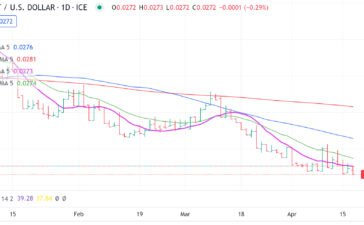The government will come under increasing pressure to end its diesel subsidy as the Oil Fund’s net cash flow has fallen to just Bt2.3 billion.
Manoon Siriwan, an energy specialist, said at a seminar organised by the Federation of Thai Industries that the up-trend in the price of crude oil was unlikely to change in the near future, hence the government should review its subsidy policy.
Since December, the government has capped the retail diesel-fuel price at Bt30 per litre, resulting in outflows from the Oil Fund, which has led to its depletion from Bt34.6 billion to the present Bt2.36 billion.
With the crude-oil price currently at more than US$100 per barrel, the Oil Fund is seeing an outflow of Bt314.8 million per day to subsidise the diesel price.
Olarn Chaipravat, a former deputy prime minister, said no government would dare to float oil prices when elections were near but subsidies are now risky because of the fast-depleting Oil Fund.
In the first quarter, the prices of refined oil products have risen by more than 20 per cent on unrest in the Middle East as well as natural disasters in Japan, where a nuclear power plant that was generating 9,702 megawatts has stopped operation. As a result, Japan will have to fall back on importing traditional sources of energy such as coal, natural gas and oil.
Surong Bulkul, chief executive officer of Thai Oil, said the current up-trend in the prices of finished oil products was due to the Japanese crisis. The market is expected to reach its peak in June, so the Thai government’s subsidies are now risky.
Meanwhile, Energy Minister Wannarat Charnnukul said at a seminar on “A Balanced Energy Policy for a Sustainable Economy and Society” that the country aimed to produce as much as 5,600MW from renewable sources in the near future.
He told the seminar, organised by Krungthep Turakij newspaper, that Thailand’s electricity capacity was now nearly 30 gigawatts, with natural gas accounting for 70 per cent of the total, followed by coal at 10 per cent and hydroelectricity at 5 per cent.
He said renewable energy was the answer to the declining reserves of hydrocarbons, so the country’s target was to generate 5,604MW by 2022, according to the Power Development Plan. This includes 500MW of solar energy, 800MW of wind energy, 324MW of hydropower, and 3,700MW of biomass power.
In addition, the purchase of energy from neighbouring countries will be limited to 25 per cent of the total requirement to minimise risks.
Piyasvasti Amranand, a former energy minister who is currently president of Thai Airways International, said it was difficult to implement a nuclear-power policy in Thailand even though such energy would help reduce global warming.
He said the Japanese crisis was similar to the 1986 Chernobyl disaster in Ukraine, so it could affect nuclear-power projects around the world for many years to come.
Source: The Nation





